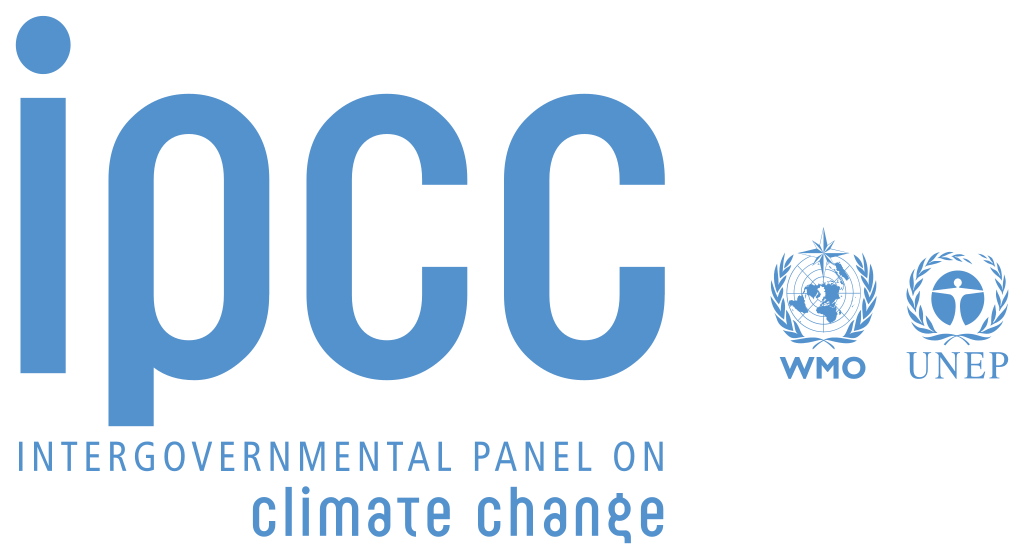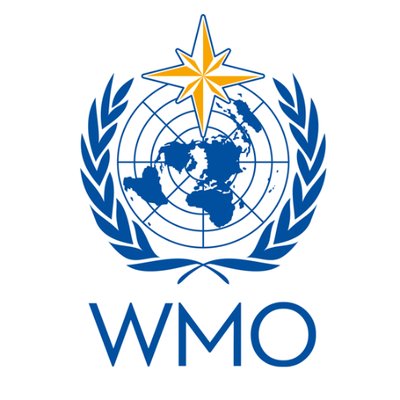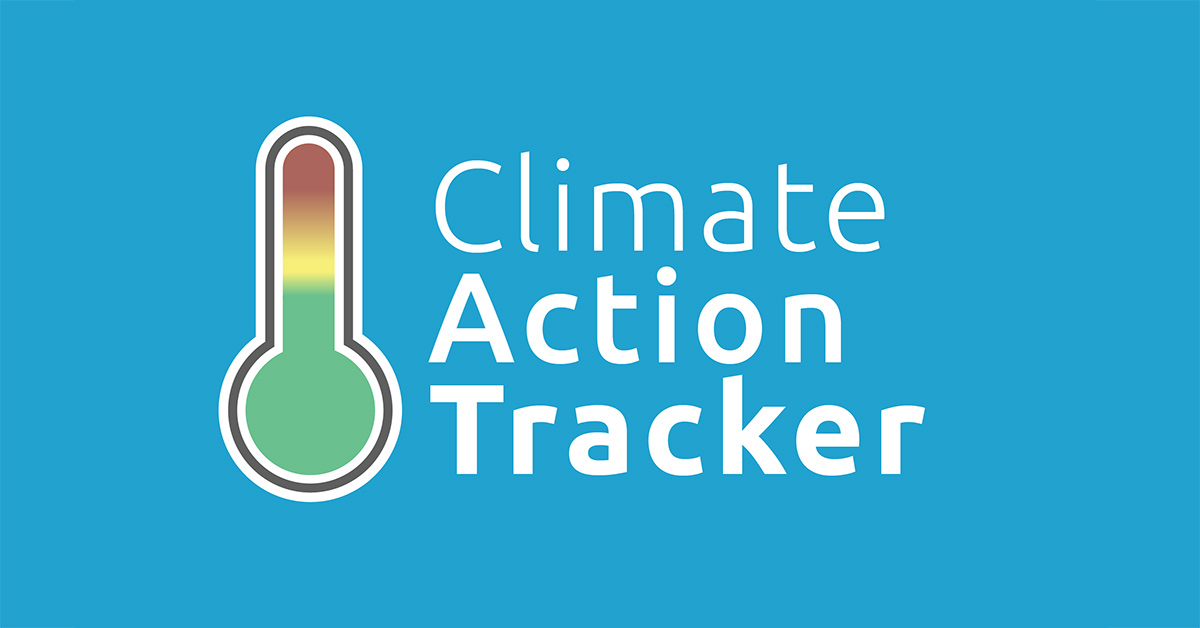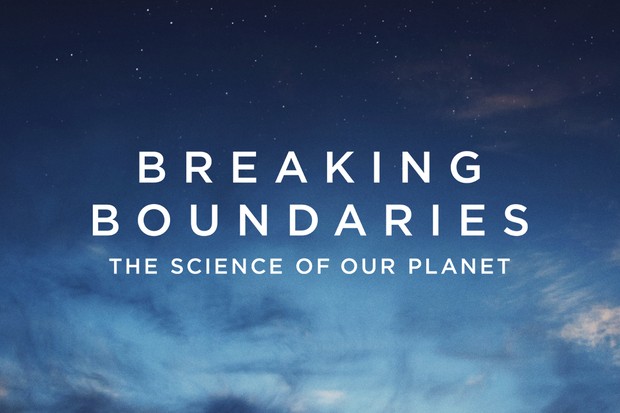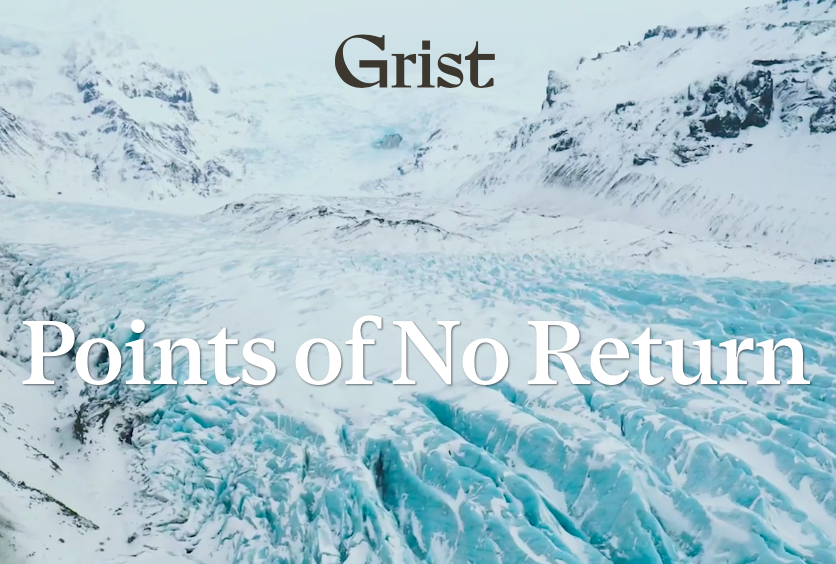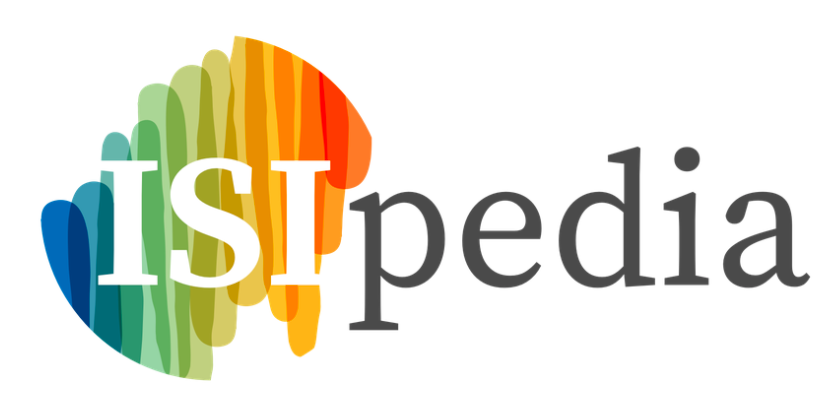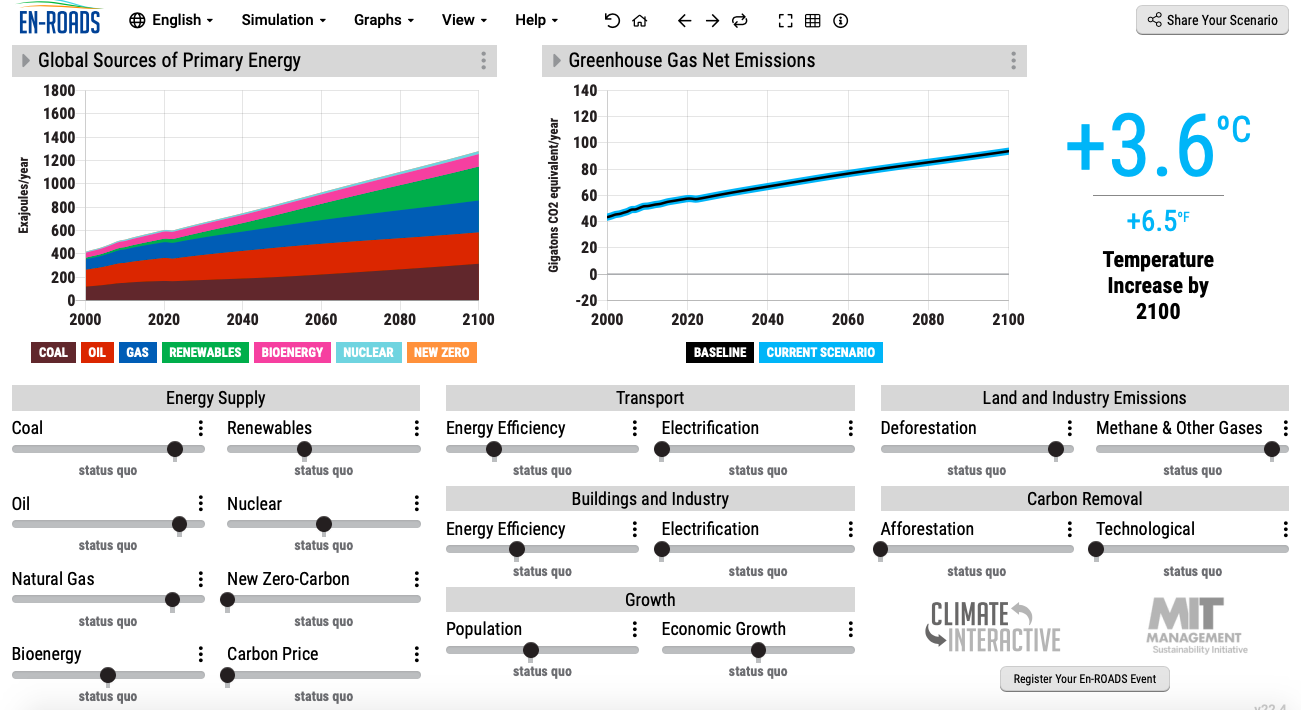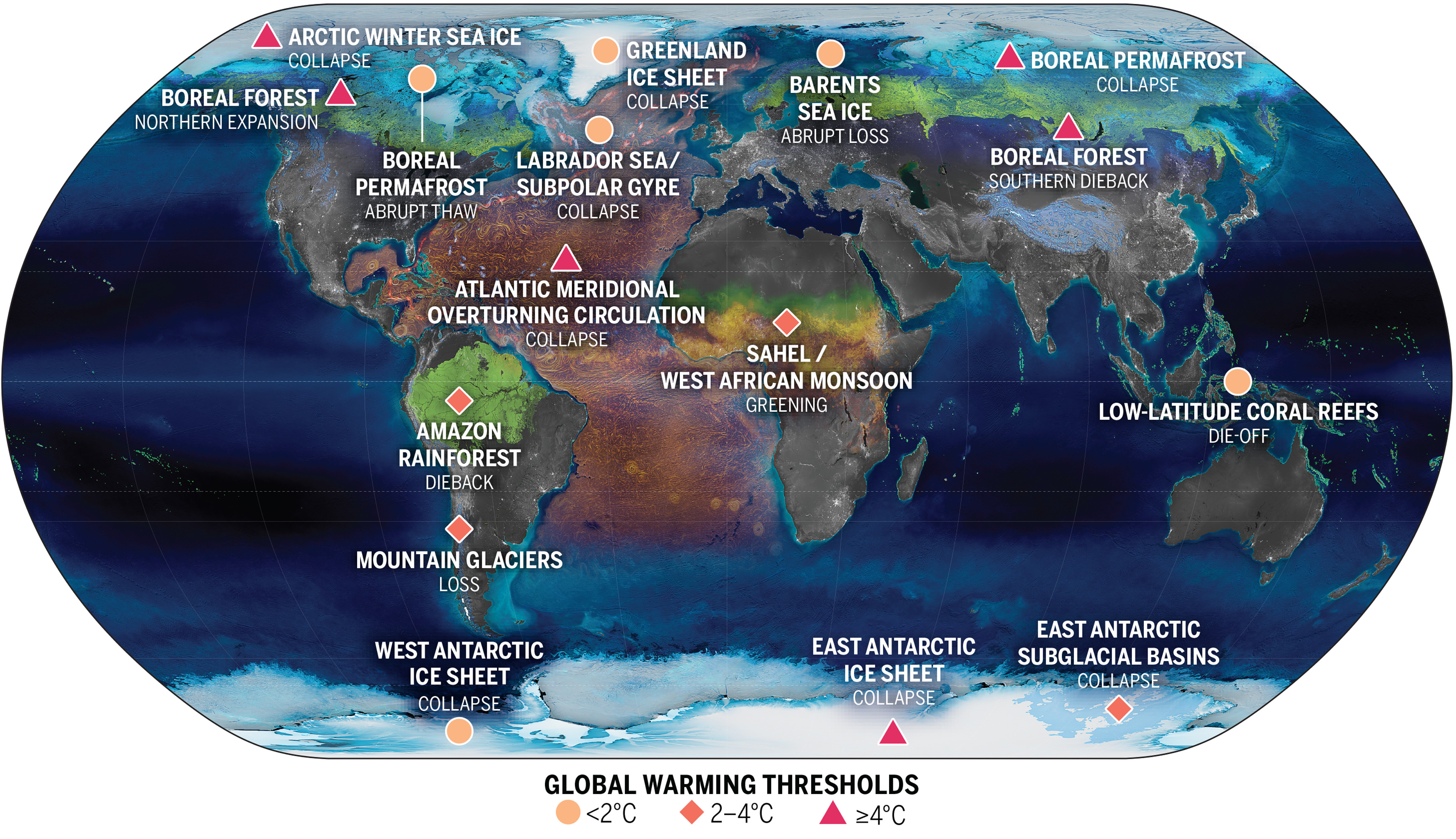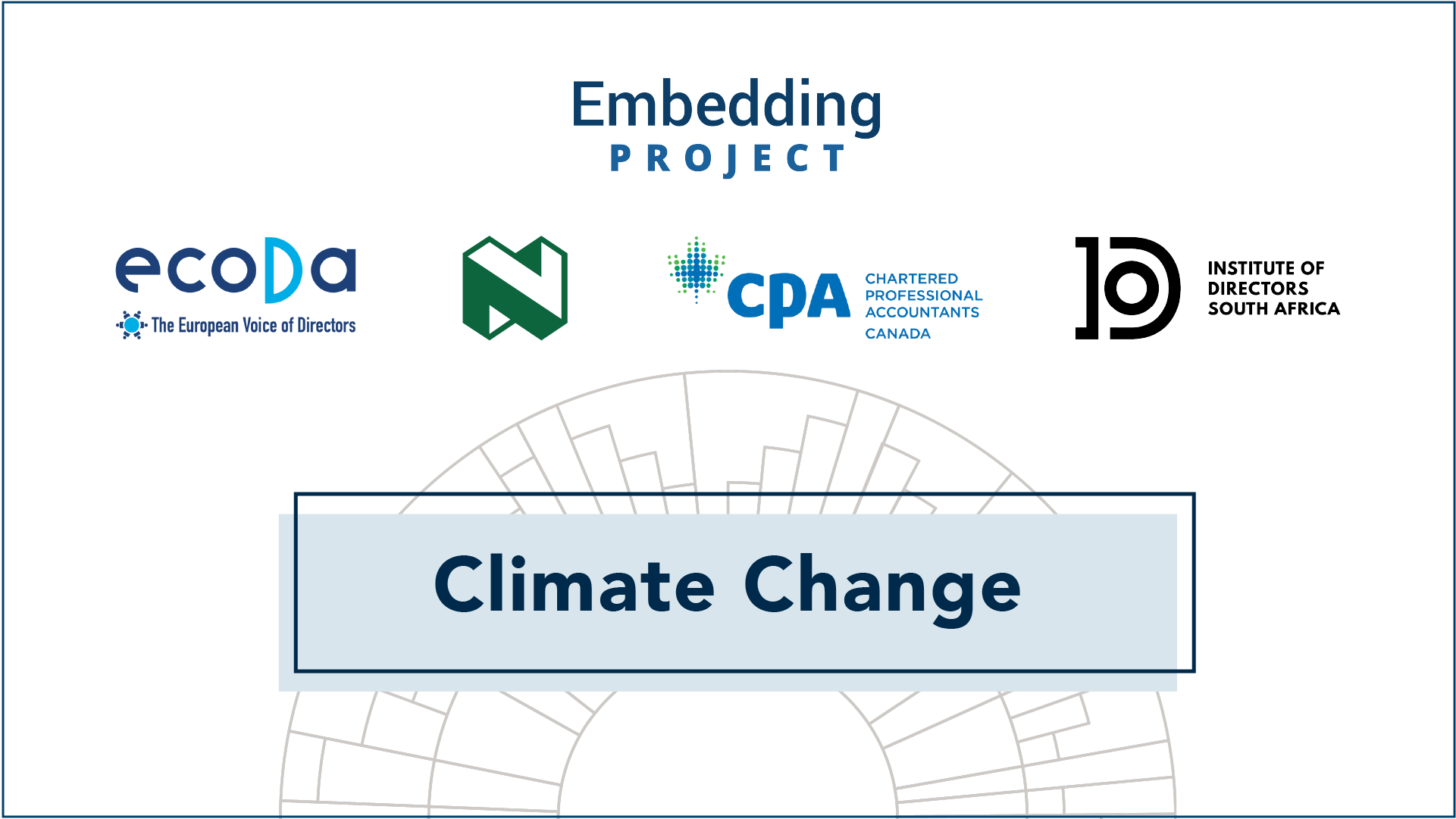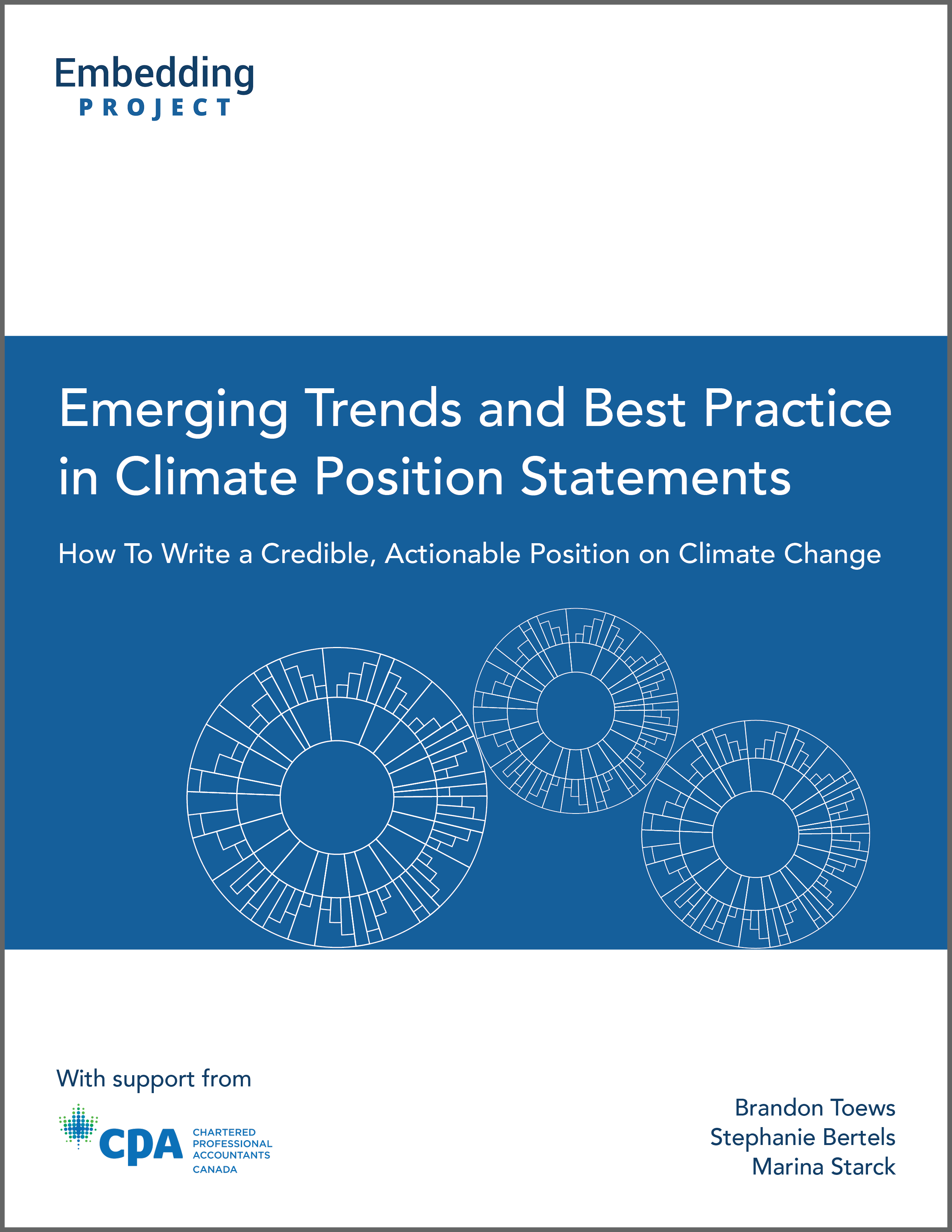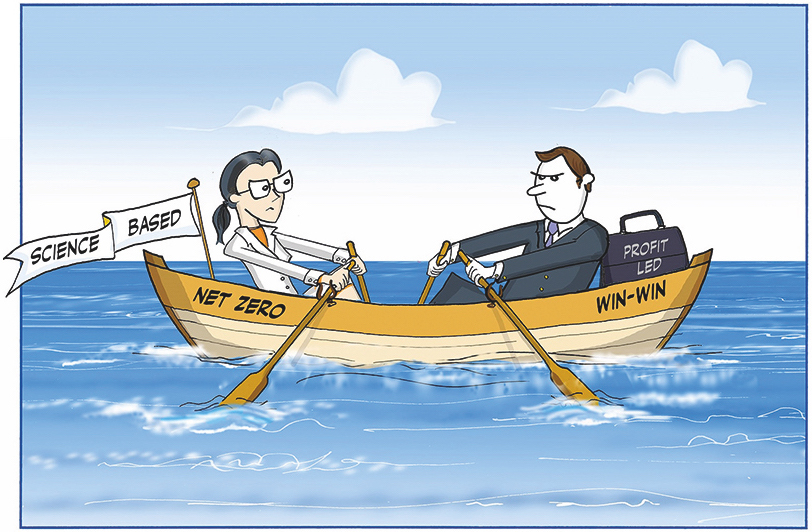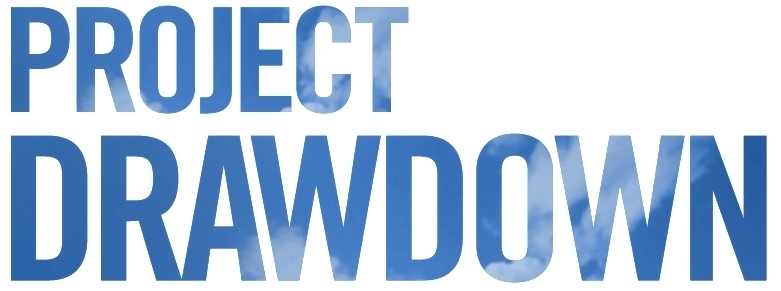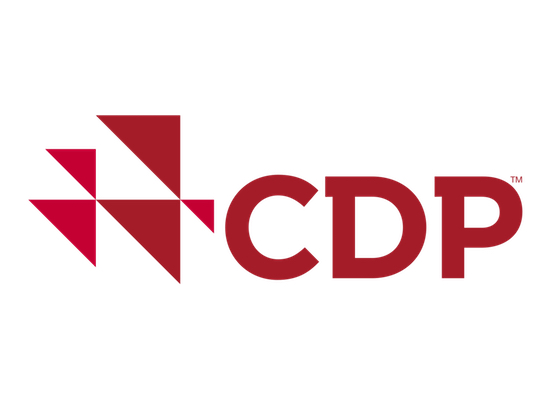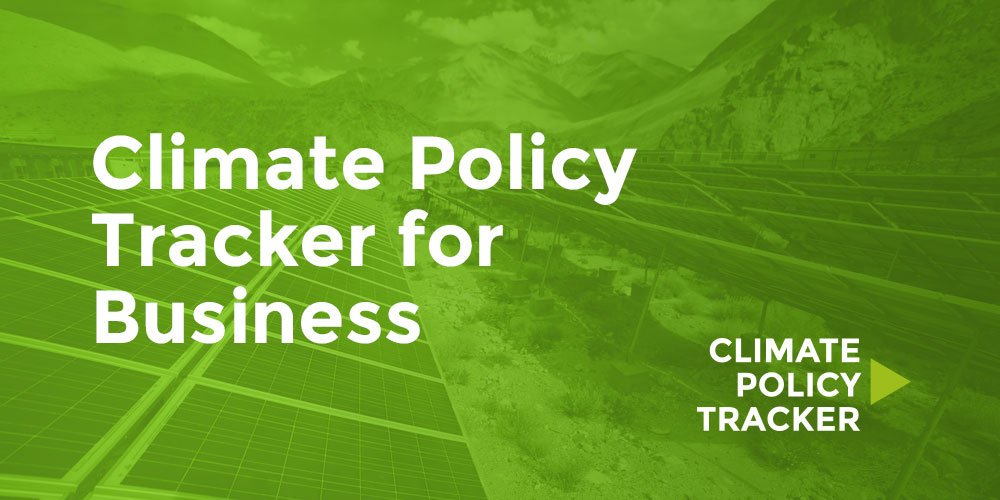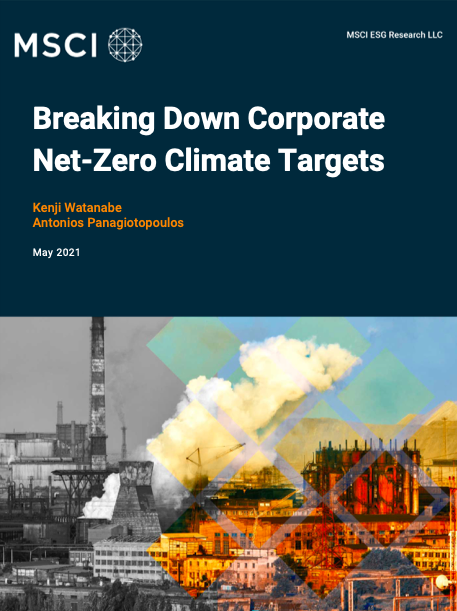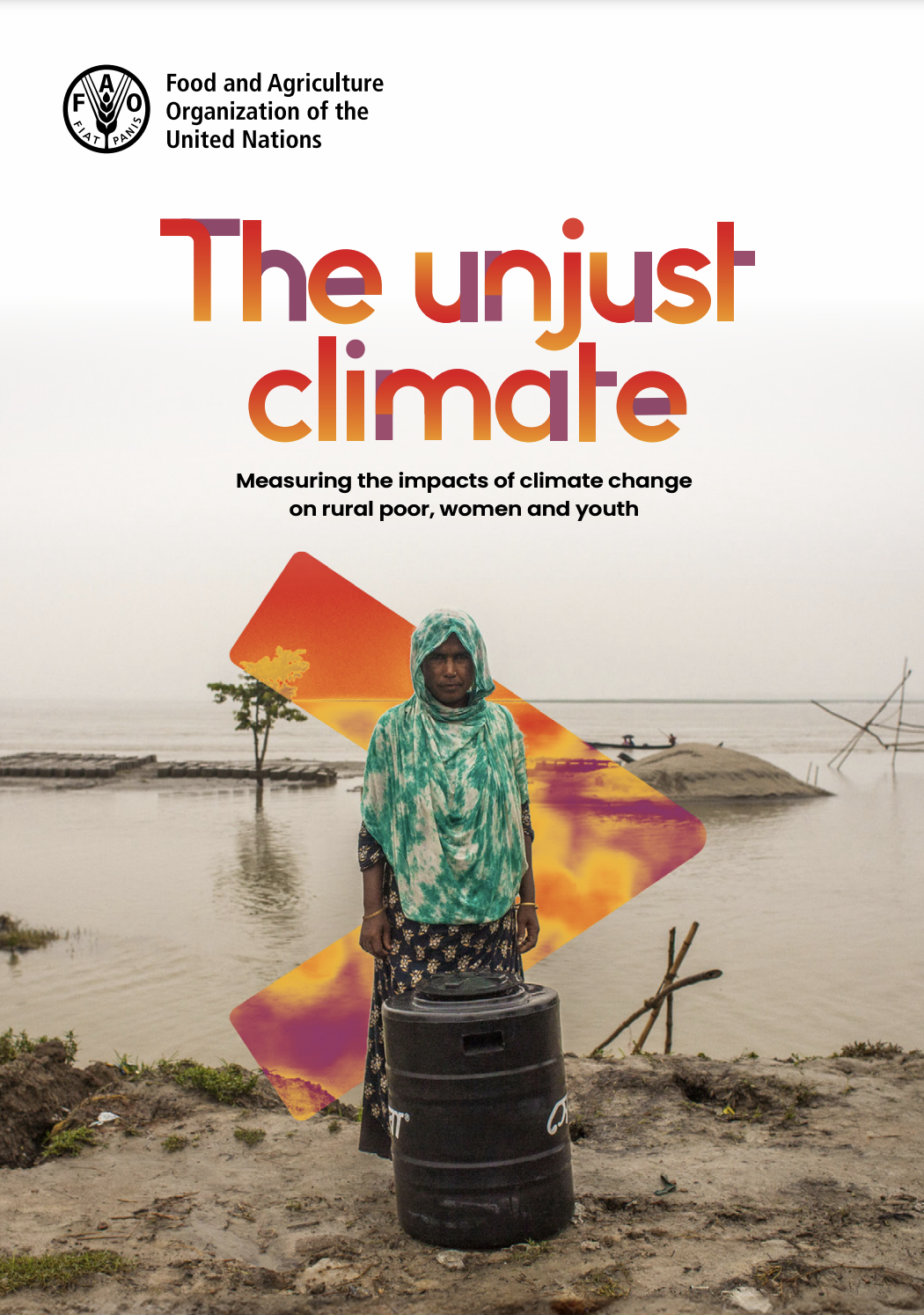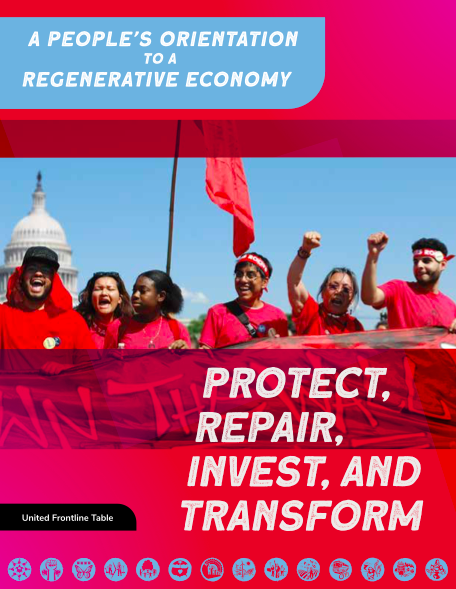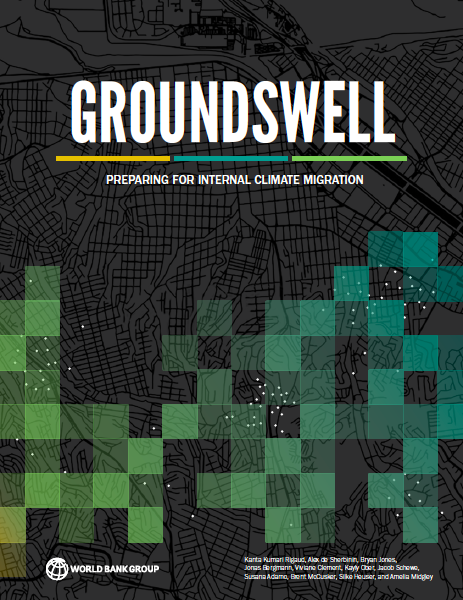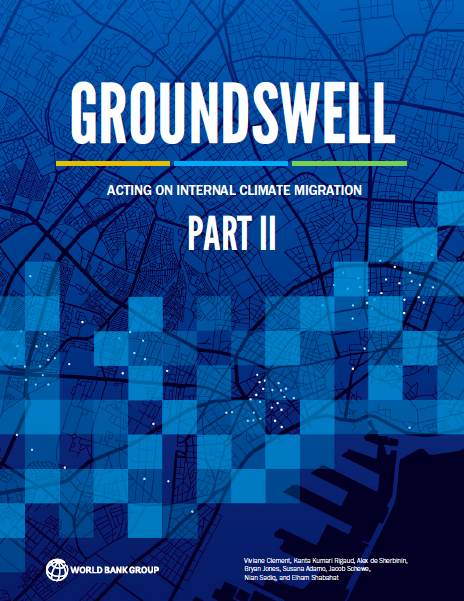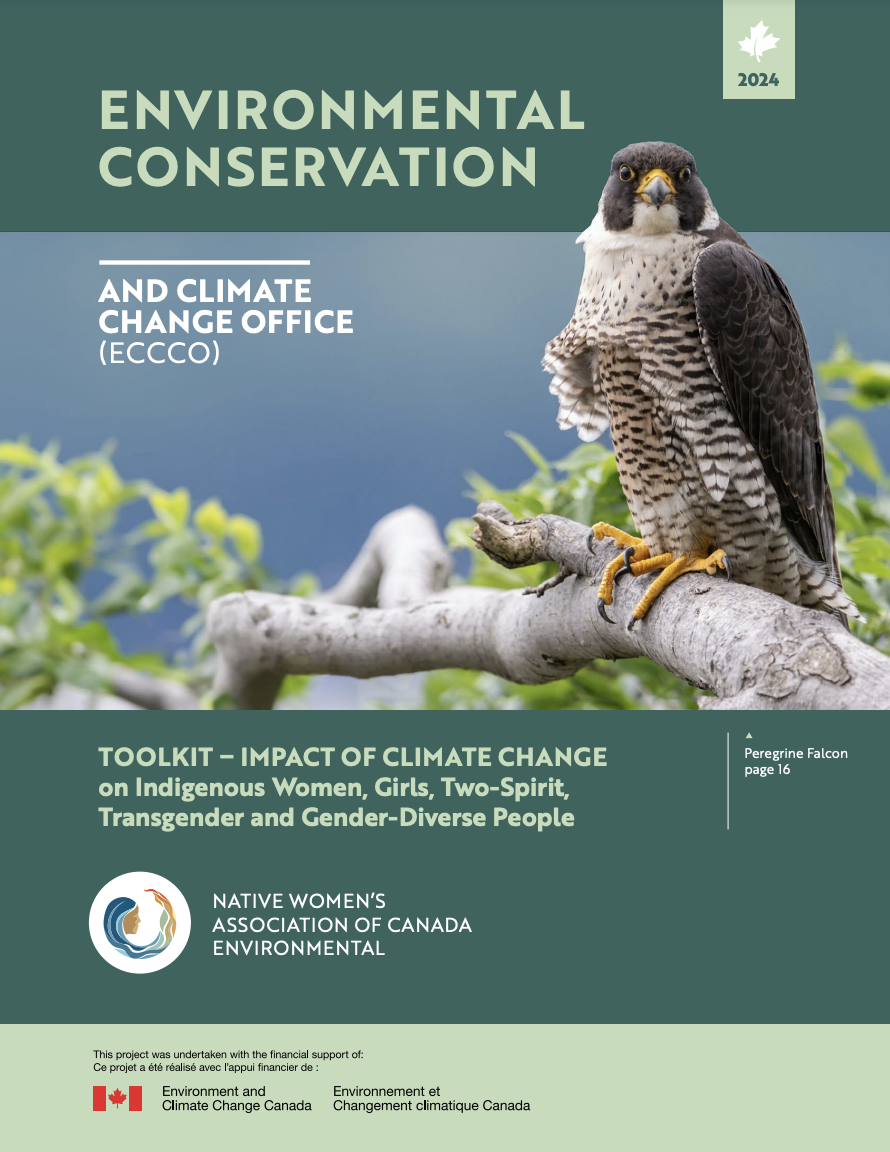General Resources
Description
General resources that provide a high-level understanding of climate change as an issue.
Share this Subissue on:LinkedIn
Resources
Understanding Climate Change
Intergovernmental Panel on Climate Change
Established in 1988, the Intergovernmental Panel on Climate Change (IPCC) is the leading authority on climate change knowledge, and is dedicated to providing objective, scientific information relevant to understanding the scientific basis and risks of climate change. If you are looking for reliable summaries of published, peer-reviewed literature on climate change to inform your strategy and decision-making, this is an excellent place to start. The IPCC's newly released Synthesis Report is the fourth and final instalment of the Sixth Assessment Report (6AR). It summarises the first three sections of the 6AR, which explained the physical science of the climate crisis, including observations and projections of global heating; the impacts of the climate crisis and how to adapt to them; and ways of reducing greenhouse gas emissions. The Synthesis Report makes it clear that time has run out for incremental action - humanity must respond with swift and significant action to avoid the worst impacts of increasingly extreme heatwaves, droughts, flooding, and other crisis conditions.
The IPCC also produces Special Reports, which assess specific issues, and Methodology Reports, which provide practical guidelines for the preparation of greenhouse gas (GHG) inventories.
Global Climate Change: Vital Signs of the Planet
If you are looking for a reliable and comprehensive starting point for building up your knowledge and understanding of climate change, NASA's repository on climate change is your one-stop shop. This platform provides a wealth of relevant and credible information that will support the learning of executives and boards, sustainability change agents, and managers, including the latest research, breaking news, and nuanced Q&A on climate change evidence, causes, effects, and solutions.
State of the Global Climate 2023
This annual report from the World Meteorological Organization provides an update on trends in global climate indicators; explores recent high-impact events, including heatwaves, wildfires, flooding, drought, and severe storms; and explains the risks and impacts of climate crisis conditions on food security, population displacement, ecosystems, and more.
Emissions Gap Report
The UNEP Emissions Gap Report provides a yearly review of changes between where greenhouse emissions are predicted to be in 2030 and where they should be to avoid the worst impacts of climate change. The report also analyses low-carbon recovery measures, summarises the scale of new net-zero emissions pledges by nations and looks at the potential of the lifestyle, aviation and shipping sectors to bridge the gap. This is a helpful resource for remaining abreast of the 'commitment' gap and for understanding the scale and scope of climate change-related goals that your company will need to set in order to do your part in slowing - and eventually reversing - the rise in GHG emissions.
Climate Action Tracker
The Climate Action Tracker (CAT) is an independent scientific research group that tracks climate action and measures it against the globally agreed Paris Agreement aim of "holding warming well below 2°C, and pursuing efforts to limit warming to 1.5°C." A collaboration of two organisations, Climate Analytics and NewClimate Institute, the CAT engages in a wide range of activities for the benefit of advancing climate change education and action, including quantifying and evaluating climate change mitigation targets, policies, pledges, and initiatives; determining likely temperature increases during the 21st century using the MAGICC climate model; developing sectoral analysis to illustrate required pathways for meeting the global temperature goals; and more. This is an excellent source of information on climate trajectories and the emissions gap, and for understanding climate governance at the national level.
State of Climate Action 2023
This report is a good resource for helping business leaders and sustainability professionals understand where global efforts to address climate change should be prioritised. It provides a comprehensive overview of the global gap in climate action across the world’s highest-emitting systems, highlighting where progress must accelerate over the next decade to keep the Paris Agreement’s goal to limit warming to 1.5°C within reach. It identifies 1.5°C-aligned targets and associated indicators for power, buildings, industry, transport, forests and land, and food and agriculture, and includes targets and indicators to track progress made in scaling up carbon dioxide removal technologies and finance. It also explores the barriers to more ambitious action, as well as a key set of factors that can enable transformational change across each system.
Breaking Boundaries: The Science of our Planet
This film is among the first mainstreams efforts to explain environmental limits (such as the Paris Agreement's limits on greenhouse gasses) to the broader public. Hosted by David Attenborough and Johan Rockström, and based on the Planetary Boundaries Framework, the film provides a good summary of nine key earth system processes and explains how abrupt and irreversible changes are likely to occur when key “limits” or “boundaries” are trespassed. The film will help to acquaint you with the concept of thresholds, and will explain how close we are to exceeding them, or - in the case of climate, biodiversity, and other process - how far past we have already gone.
Points of No Return
This resource explains how climate change is threatening to push Earth's arctic, land, and oceanic systems towards and beyond "tipping points," the result of which may spell catastrophic regime shifts. The information here has been compiled by Grist - a nonprofit organisation dedicated to telling stories of climate solutions and a just future. This resource will help you to quickly build an understanding of how climate-related change is manifesting in key systems and regions, such coral reefs, in Atlantic circulation, in Greenland and Antarctica, and in permafrost and forests.
ISIpedia: the open climate-impacts encyclopedia
ISIpedia provides public access to climate-impact science materials to improve understanding of climate related risks. These materials include simulations from Inter-Sectoral Impact Model Intercomparison Project (ISIMIP), which offers a framework for consistently projecting the impacts of climate change across affected sectors and spatial scales; articles on extreme events, biodiversity, water, forests, fisheries, and other topics that intersect with climate change; and comprehensive glossary of climate- and climate change-related terms; and more. This is an excellent reference point for sustainability practitioners who want to learn more about national-level climate-impact projections.
En-ROADS Climate Solutions Simulator
This free climate simulator from Climate Interactive, the MIT Sloan Sustainability Initiative, and Ventana Systems will allow you to explore the connections and impact of dozens of policies - such as adjusting subsidies on energy types, electrifying transport, and incentivising the electrification of buildings and transportation - on hundreds of factors, such as global temperature, air quality, energy prices, and sea level rise. This system dynamics model is carefully grounded in the best available science, and has been calibrated against a wide range of existing integrated assessment, climate, and energy models to help you visualise the effects of our actions on global warming.
WMO Global Annual to Decadal Climate Update
This annual report from World Meteorological Organization (WMO) provides a synthesis of near-future predictions that can help sustainability change agents to educate leaders within their organisation and to inform the company's strategy and messaging. For example, this latest report suggests that there is a 50/50 chance of average global temperature already reaching 1.5°C above pre-industrial levels within the next five years, and a 93% likelihood of at least one year between 2022-2026 becoming the warmest on record.
Climate Watch
Climate Watch is an online platform that that can help you to better understand, visualise, and convey climate-related trends and progress. The platform provides a comprehensive array of open data on countries' climate plans and nationally determined contributions, emissions data, national economic and emission scenarios, and more.
Exceeding 1.5°C global warming could trigger multiple climate tipping points
Climate tipping points are 'points of no return,' or conditions beyond which changes in a part of the climate system become self-perpetuating. This comprehensive article explains how global warming of even just 1°C, a threshold that the planet has already passed, puts communities, environmental systems, and economies at risk by triggering some tipping points. It reassesses known climate tipping points, as well as their timescales and impacts, and highlights steps to further improve understanding on these tipping points. This resource for achieving a more up-to-date understanding of the actions required to prevent the worst outcomes from climate change.
10 New Insights in Climate Science 2023/2024
This resource highlights the latest key findings and insights related to climate change. It is produced as a collaboration between Future Earth, The Earth League, the World Climate Research Programme (WCRP), and others, and is updated annually. This resource may be of particular benefit to change agents and other sustainability professionals who are interested in presenting crucial (and compelling) climate-related bullet points to senior leaders.
The State of Climate Action: Major Course Correction Needed from +1.5% to −7% Annual Emissions
This white paper from the World Economic Forum can help you understand the insufficiency of climate action to date and the dramatic change of course required to limit global warming to below 1.5°C. It explains the insufficiency of national commitments and policies, the lack of corporate climate action, the lag in scaling up green technologies, and the massive climate funding gap. It also explains the need to radically ramp up emissions mitigation and reduction efforts even if the 1.5°C goal slips out of reach. These insights will be most useful sustainability practitioners and decision-makers, such as senior managers and boards of directors.
Climate TRACE
Climate TRACE has created a sophisticated and accessible inventory of greenhouse gas emission sites from around the world to help you pinpoint decarbonisation opportunities. This mapping platform uses machine learning, satellites, and other technology to detect and track more than 350 million sources of greenhouse gas pollution from around the globe.
The Climate Dictionary
This dictionary from the UNDP can help you to better understand and communicate the issue of climate change. It uses compelling visuals, concise explanations, and engaging storytelling to make climate terms and concepts widely accessible and relatable, and without scientific jargon. This resource will be most useful to sustainability change agents and other communicators seeking to engage with those less familiar with climate topics.
Climate Change and Climate Risks: What Corporate Directors Need to Know
Climate change threatens both the future success of businesses and the wellbeing of society. Corporate directors have the opportunity and responsibility to steer their businesses towards supporting climate resilience. To do so, directors must understand climate science, the risks and opportunities for businesses, and the actions needed to respond to them.
Five ways the climate crisis impacts human security
This short article from the UN is a good primer on some of the key ways climate change is impacting human security, including greater competition over land and water and increased security risks for women and girls.
Atmospheric Carbon Dioxide Tagged by Source
This visualisation from NASA shows atmospheric carbon emissions and sequestration across the globe over a one year period. It includes emission sources from fossil fuel combustion, biomass burning, land ecosystems, and the ocean. It also shows the areas of land and ocean that are sequestering carbon. This resource provides compelling visuals that can be shared with business leaders and anyone else who would benefit from better understanding the scale of our human impact on the carbon cycle.
Understanding Corporate Responsibility on Climate Change
Climate Risk Oversight for Directors
This 4-part video series will help corporate directors and leaders understand the risks of climate change and their role and fiduciary responsibilities to oversee these risks. We have also created videos specific to the Canadian and South African context.
Emerging Trends and Best Practice in Climate Position Statements
Climate change is happening, and the impacts are intensifying. Companies are expected to take a position on climate change and outline an appropriate response. The Embedding Project’s climate position guide helps companies to articulate a concise and transparent board level position on climate change. Drawing on in-depth analyses of over 2,600 climate position statements, this guidebook provides a checklist for crafting a climate position statement with concrete examples from a range of industries and global settings.
From win-win to net zero: would the real sustainability please stand up?
This article is a great place to start if you are confused about the scale and scope of action required by industry to credibly address climate change. The article explores how two fundamentally different interpretations of ‘sustainability’ have come to exist: a net zero imperative that is informed by science and acknowledges social and environmental thresholds, and a type of "win-win" sustainable business model that favours “sustainable growth” and tries to promote palatable (yet inadequate) amendments to the status quo. Duncan Austin explains how net zero commitments are an imperative for stopping and reversing climate change, and that "win-win" cannot deliver the change we need in time. This article will also help you to understand how - and why - it is necessary for us to reimagine prosperity and to conceive of and create an economy based on no growth or even shrinking growth.
Project Drawdown
The Drawdown Review is Project Drawdown's flagship report, and was written to support the efforts of business leaders and sustainability professionals to rapidly assess the evolving landscape of climate change solutions. This publication offers key insights and a straight-forward solutions framework that will help you and your organization to move the world towards "Drawdown" - the future point in time when levels of greenhouse gases in the atmosphere stop climbing and begin to decline.
Project Drawdown also conducts ongoing review and analysis of climate solutions, and offers other regular publications, including new solutions, scenarios, and insights. Their other top resources include an online course on climate solutions; job function action guides; a comprehensive table of solutions; and a video series "roadmap" for strategically mobilising these solutions.
How to Set Up Effective Climate Governance on Corporate Boards: Guiding principles and questions
Boards need to be equipped with the right tools to make the best possible decisions for the long-term resilience of their organisations and to provide effective governance around climate risks and opportunities. In response, this paper from the World Economic Forum and PwC proposes tools that support boards to navigate climate risks and opportunities. The principles herein are designed to increase directors’ climate awareness, embed climate issues into board structures and processes, and improve identification and navigation of climate-related risks and opportunities for business. This work contributes to the WEF’s Compact for responsive and responsible leadership, and provides a compass for enabling effective climate governance.
Climate Change Briefing: Questions for Directors to Ask
This brief is a good primer on climate change for directors. It offers 20 questions they can ask management about how they are adapting to and mitigating the impacts of climate change. Part of Chartered Accountants of Canada’s 20 Questions Series, it includes specific questions related to risk, strategy, financial performance, external reporting systems, and controls and governance.
Carbon Disclosure Project
Best known for their in-depth questionnaire, certification program, and scoring system, the Carbon Disclosure Project provides sector-related climate change research, with full reports available to members and signatories. These resources will help you to quickly survey the scene of climate change efforts, needs, and predictions within the context of your industry.
Climate Policy Tracker for Business
Policies resulting from the implementation of the Paris Agreement are reshaping national economies, value chains, and corporate strategies. In response, the We Mean Business coalition and BSR have created the Climate Policy Tracker - a free online platform designed to help businesses determine which climate policies are relevant across key countries and industries. This resource provides up-to-date information on climate regulations and will enable you to build a comprehensive picture of the policies impacting your operations and value chain based on sector and locations of operation.
Breaking Down Corporate Net-Zero Climate Targets
Critically assessing companies' decarbonisation targets requires breaking them down into individual components, such as target types and units, the boundaries for the emissions they cover, and associated timelines. The lack of uniformity can make comparison a challenge. This guide from MSCI introduces an analytical framework to help you evaluate climate targets across three key dimensions: comprehensiveness, ambition, and feasibility. This framework will be particularly helpful to institutional investors who are trying to better understand the credibility of climate commitments to better mitigate climate-related risks in their portfolio.
Primer on Climate Change: Directors’ Duties and Disclosure Obligations
This primer from the Climate Governance Initiative can help directors and other senior executives understand the material financial and systemic risks that climate change presents to corporations and their investors. It begins by providing an overview of the evidence of these financial risks, and then examines the obligations these risks create in respect to both the duties of directors and disclosure across different jurisdictions. It also considers the increasing attention to biodiversity risk and its potential to affect directors’ duties.
Corporate Climate Stocktake 2023
This report from the We Mean Business Coalition can help you understand the current state of private sector progress toward achieving net zero. Based on a survey of business leaders, it highlights the accelerating transition to clean technologies, system constraints impeding progress, recent breakthrough innovations, the key role of governments, and outstanding financial cost challenges. The report also provides sector-specific net-zero transition summaries, identifying the key transition challenges and opportunities within each sector. This snapshot of corporate climate action will be most useful to strategy teams and sustainability practitioners in general.
Nature and Climate Action: A Resource Navigator for Companies and Financial Institutions
This comprehensive resource created by the Global Commons Alliance, the Climate Champions Team, and AccountAbility can help you navigate the resource landscape for business action on nature and climate. Section 4 maps out global frameworks, standards, methodologies, and decision-making tools, and section 6 provides a step-by-step pathway to learning and features resource tables that align with the target-setting frameworks of the SBTN and SBTi. Sections 7 and 8 then provide in-depth summaries of key resources. This resource will be especially useful to professionals seeking clarity on the use of both new and well-established sustainability tools and frameworks.
Understanding Climate Justice
The right to a clean, healthy, and sustainable environment
In August 2022, the United Nations General Assembly passed a resolution recognising the right to a clean, healthy, and sustainable environment as a human right. States, international organisations, businesses, and other stakeholders have a responsibility to “scale up efforts” to ensure a clean, healthy, and sustainable environment for all.
Business Guide to Advancing Climate Justice
This guide from B Lab and Forum For The Future was created to help business leaders, sustainability change-makers, and entrepreneurs embed equity and justice into their climate action efforts. The guide compiles the perspectives of people living and working at the frontlines of climate change, people working to support and advance social justice issues, and those who believe that there is a significant role for the private sector to take action. It also provides tangible guidance from business, policy-makers, and civil society experts working in partnership with frontline communities to advance these issues. This includes guidance on equitable partnerships, internal and external engagement, value chains, policy advocacy, and more.
This guide builds on previous guidance from B Lab, including the Climate Justice Playbook for Business. They have also created a series of case studies to illustrate how B Corps are advancing climate justice.
The Climate Justice Playbook for Business
Putting people and justice at the center of business efforts to address climate change is imperative to achieving the actions necessary to reduce and reverse its impacts on communities, the environment, and industry. B Lab’s Climate Justice Playbook for Business is a good starting point for understanding and enacting climate justice. It provides a sound business case for climate justice, features case studies of climate justice in action, and addresses key obstacles, insights, and questions. It also identifies the key stakeholders and rights holders who your business should collaborate with to maximise the scale and scope of your contributions to achieving a just transition.
In-depth Q&A: What is ‘climate justice’?
This is an excellent primer on climate justice, and may be particularly helpful for executives, board members, other business leaders, and change agents who are not yet familiar with the concept and who may have questions similar to the ones posed. This resource explores the history of climate justice; explains why the impacts of climate change have such a disproportionately large effect on those who have contributed the least to global warming and who are most vulnerable to the consequences; and examines how the concept is influencing our social, political, and legal spheres.
Experts: Why does ‘climate justice’ matter?
What does 'climate justice' mean, and why is important? This article from Carbon Brief features a range of responses from scientists, policy experts, and campaigners that can help to grow your understanding of why it is important for businesses to move beyond climate mitigation and adaptation and advance climate justice in their strategy and goals.
The unjust climate: Measuring the impacts of climate change on rural poor, women and youth
This report from the Food and Agriculture Organisation of the United Nations provides concrete and comprehensive evidence on the scale of the challenge posed by the climate crisis for rural and vulnerable peoples. It illustrates wealth-, gender-, and age-related disparities in climate vulnerability; highlights priorities and provides recommendations for inclusive action; and explains in detail its data, variables, and research methods.
A People's Orientation to a Regenerative Economy
This guide from the United Frontline Table is an excellent starting point for understanding what a "regenerative economy" is and how your company can play its part in achieving it. It provides nuanced definitions for a range of intersecting issues and phenomena, including Climate Justice, Feminist Economies, Sacrifice Zones, and a Just Recovery and Just Transition. It introduces five critical points of intervention that will help to develop your narrative of positive contribution and shape policies that will uplift people and communities. The guide also includes a series of prompting questions, a framework for policies that will help you to advance a regenerative economy, and fourteen themes (or planks) that must be addressed to achieve a regenerative economy.
Groundswell: Preparing for Internal Climate Migration
The impacts of climate change will not be distributed evenly among the world's people, and the pursuit of clean water and fertile land and relief from rising sea levels and diastrous weather patterns is predicted to yield an historic wave of human migration. This report from the Word Bank will help you to understand the relationship between climate change and human migration; provides modeling and projects for climate migration within Sub-Saharan Africa, South Asia, and Latin America; and explains how climate migration can be managed to reduce undue hardship.
Groundswell Part 2: Acting on Internal Climate Migration
A follow-up to Groundswell: Preparing for Internal Climate Migration, this report from the World Bank uses scenario-based modeling to explain how climate change will push millions of people to migrate from East Asia and the Pacific, North Africa, and Eastern Europe and Central Asia. It will further build your understanding of how climate change impacts are shaping mobility trends, and highlights how far-sighted planning is needed to ensure sustainable development outcomes.
Climate Inequality Report 2023: Fair taxes for a sustainable future in the Global South
Climate impacts are not equally distributed across the world; on average, the countries of the Global South suffer greater impacts than their counterparts in the Global North. This comprehensive report from the World Inequality Lab can help you to understand the inequality of climate change contributions, the inequality of exposure to climate change impacts, and how these inequalities can be addressed.
Although the report is intended for the public sector, the findings and recommendations may provide valuable insights for sustainability and public affairs teams seeking to support resilience in the communities where they operate.
Climate Equality: A planet for the 99%
This paper from Oxfam can help you better understand how inequality is intertwined with the climate crisis. It explains the inequality between those emitting the least and most greenhouse gasses and highlights how those least responsible also have the least ability to mitigate climate change and adapt to its impacts. It also highlights three solutions to address both inequality and the climate crisis together and provides policy recommendations. This resource will be useful to sustainability practitioners and anyone interested in supporting the Just Transition.
Climate Action Now: Online Course
This free, self-paced course from the Pachamama Alliance can help you understand the climate crisis through the lens of climate justice. It begins by exploring the crucial role equity plays in addressing climate crisis, and then dives into the interconnected systems of inequity that have created - and are being perpetuated by - the crisis. Finally, it demonstrates the importance of centering communities in climate solutions and how to find your role in the climate fight.
Climate Justice is the Solution to Our Climate Crisis
Leading companies recognise the reality of climate change and its effects. In response, they often focus on mitigating emissions. But these efforts are only part of the solution. This blog post discusses the need for companies to participate in a just transition to a net-zero economy.
9 Actions That Will Help Your Company Support Climate Justice
Advancing climate justice is the responsibility of every company, but it is a complex, multifaceted undertaking, and you may be wondering where to begin. Here are some key actions your company can take right away.
Toolkit - Impact of Climate Change on Indigenous Women, Girls, Two-Spirit, Transgender and Gender-Diverse People
This toolkit from the Native Women's Association of Canada can help you to understand how climate change is impacting Indigenous women and their communities, as well as the vital roles these peoples play in protecting the environment. This kit features a collection of tools that highlight how Indigenous practices and traditions can advance climate change adaptation and mitigation at all geographic levels; provide information on biodiversity improvement tactics; and link to resources that support food security, wildfire management, funding opportunities for climate action, and more. This is a good resource for change agents that want to apply an Indigenous world view and gender lens to their climate justice education and activities.
Advocating for Change: A Compendium on Climate Mobility
This resource by the Climate Migration Council can help you understand the complexities of increasing climate change-related mobility and the need for action. The first part of the guide outlines five action areas, or “pillars”: 1) improving displacement prevention; 2) supporting disaster-affected people who persist in place; 3) enhancing mobility pathways; 4) protecting displaced persons; and 5) taking action on loss and damage. Each pillar is broken down into two or three sub-sections, and each sub-section features a backgrounder and a list of recommended actions. The second part of the guide highlights a diversity of perspectives for addressing climate mobility, including a climate justice lens, a development lens, a (human) security lens, a migration management lens, and others. Users can draw on different approaches based on what best suits their context and resonates with their target audience. These insights will be most useful to changemakers seeking to better understand how climate displacement dynamics may affect business operations and value chains.
Blueprint for Implementing a Leading Climate Transition Action Plan
This report from Ceres makes the business case for climate transition action plans (CTAPs) in response to climate-related risks, opportunities, and regulations. The report provides specific ways companies can create a leading plan across six action areas, including goal- and target-setting, decarbonising the business, ensuring a just transition, advocating for public policy, supporting integration and accountability, and tracking and reporting progress. By developing a credible and effective CTAP, companies can better position themselves for not just compliance but success in the low-carbon-economy.
Just transition litigation tracking tool
The trend of systemic abuse of communities and workers in renewable energy value chains has created a surge in litigation from Indigenous Peoples, communities, and workers. This tracking tool from the Business & Human Rights Resource Centre was created to be the primary hub for just transition-related litigation lawsuits against companies or states for authorising a specific business activity linked to transition mineral mining or the renewable energy sector. It allows you to search by type of lawsuit, company, project, sector, natural resource, rights impacted, and more.
